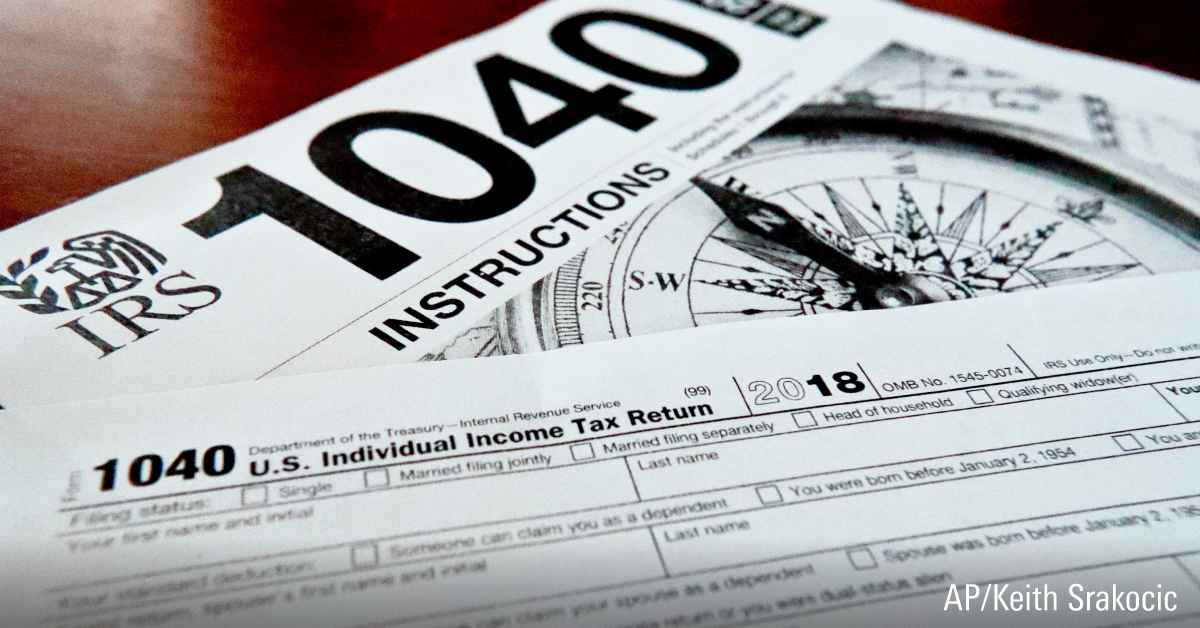Morningstar’s 2023 Tax Guide and IRA Resources
Tax day is quickly approaching. Here are the answers to some common questions about taxes and IRAs.

Tax day is Tuesday, April 18, this year. The clock is ticking for making IRA and HSA contributions for tax-year 2022 and for submitting federal and state income tax returns and taxes due.
We’ve pulled together some resources to help reduce investors’ tax-related stress this time of year. Read on for the tax-related dates to put on your calendar, what tax changes are coming in 2023, strategies for maximizing your IRA, and more.
Resources to Tackle Tax Day 2023
Your 2023 Tax Fact Sheet and Calendar
Bookmark this guide to stay abreast of the tax-related dates and data that should be on your radar this year.
We explain the different types of taxes you owe, how much to expect from your tax refund this year, and more.
4 Strategies for an Organized Tax Season
Has tax season become a frustrating paper chase? These tactics can buy you some relief.
What You Can Learn from Your 1099 Forms
These forms can yield valuable information about your portfolio’s asset location and tax efficiency.
Inflation is driving higher limits on retirement plan contributions this year, but it’s also lifting the amount of income that’s subject to Social Security tax.
What You Can Learn From Your Tax Return
Scrutinizing your tax documents can help you improve your financial and investment plan, says Maria Bruno, Vanguard’s head of U.S. wealth planning research.
Jeff Levine: Smart Tax Moves for 2023 and Beyond
The financial planning expert discusses Secure 2.0, tax planning before and during retirement, and whether investors should bank on continued low tax rates.
2023 Tax-Year IRA Contribution and Income Limits
- 2023 IRA Contribution Limits (Roth or Traditional): $6,500 under age 50/$7,500 age 50 and over.
- 2023 Income Limits for Deductible IRA Contribution, single filers covered by a retirement plan at work: Modified adjusted gross income under $73,000—fully deductible contribution; between $73,000 and $83,000—partially deductible contribution; more than $83,000—contribution not deductible.
- 2023 Income Limits for Deductible IRA Contribution, single filers who are not covered by a retirement plan at work or married couples if neither spouse is covered by a retirement plan at work: None.
- 2023 Income Limits for Deductible IRA Contribution, married couples filing jointly, if covered by a retirement plan at work: Modified adjusted gross income under $116,000—fully deductible contribution; between $116,000 and $136,000—partially deductible contribution; more than $136,000—contribution not deductible.
- 2023 Income Limits for Deductible IRA Contributions, married couples filing jointly, if not covered by a retirement plan at work but spouse is: Modified adjusted gross income under $218,000—fully deductible contribution; between $218,000 and $228,000—partially deductible contribution; more than $228,000—contribution not deductible.
- 2023 Income Limits for Nondeductible IRA Contributions: None.
- 2023 Income Limits for IRA Conversions: None.
- 2023 Income Limits for Roth IRA Contribution, single filers: Modified adjusted gross income under $138,000—full Roth contribution; between $138,000 and $153,000—partial Roth contribution; more than $153,000—no Roth contribution.
- 2023 Income Limits for Roth IRA Contribution, married couples filing jointly: Modified adjusted gross income under $218,000—full Roth contribution; between $218,000 and $228,000—partial Roth contribution; more than $228,000—no Roth contribution.
IRA Resources, Strategies, and Ideas
Tips for Last-Minute IRA Contributions
Rushing in a 2022 contribution before the April 18 deadline? Tax and IRA expert Ed Slott shares what you need to know.
The Best (and Easiest) Investment for an IRA
Target-date funds are an easy remedy for IRA procrastinators. Here’s why.
How to Get The Most Out of Your IRA Contributions
Tips for selecting the right account type and using new contributions to adjust your portfolio’s allocations.
How IRA Investors Can Avoid the ‘Procrastination Penalty’
Maria Bruno, Vanguard’s head of U.S. wealth planning research, discusses trends in IRA contributions and how to maximize the funds going into your account.
6 IRA Mistakes to Avoid in 2023
With a little planning, investors can maximize their individual retirement accounts.
Everything You Need to Know About Roth IRAs
Roth IRA contribution and income limits, the ins and outs of the backdoor IRA maneuver, and more.
You Can Make IRA Contributions at Any Age. But Should You?
Traditional IRA contributions after RMD age may make sense in a handful of situations, but not many.
Are IRA Conversions in a Down Market a Good Idea?
Tax and IRA expert Ed Slott on when conversions can result in the greatest tax savings—and what to know before you execute them.
How to Choose Funds for Your IRA
Find the right category and funds for your retirement savings.
3 Great ETFs for Your IRA in 2023
IRA accounts can enhance the tax efficiency of ETFs.
3 Great Funds for Your IRA in 2023
These funds will make beautiful music with your IRA.
More Tax Strategies for 2023
25 Top Picks for Tax-Efficient ETFs and Mutual Funds
These funds can help manage your tax-cost ratio while providing stock and bond exposure.
How to Maximize the Tax Efficiency of ETFs
And strategies that may undermine their tax advantage.
Get a Tax-Smart Plan for In-Retirement Withdrawals
Consider these strategies to stretch out your tax savings during your retirement years.
Are You Paying Too Much in Investment-Related Taxes?
Asset location is an important yet often overlooked part of portfolio planning.
3 Tax-Friendly Charitable Giving Strategies for Retirees
Consider these ideas before filing your taxes.
Tax Matters for Financial Advisors
7 Must-Know Facts About Federal Income Tax Treatment of IRAs
Here’s how income taxes hit an IRA that is payable to a trust when the owner dies.
Why Advisors Should Bother With Tax Alpha
A simple way to boost investment performance without adding risk.
The effect of postponing RMDs and how to eventually start taking money out of your retirement plan.
Tax Benefits for Active and Passive Real Estate Investors
Investors can save on taxes through the tool of depreciation.
The author or authors do not own shares in any securities mentioned in this article. Find out about Morningstar’s editorial policies.

:quality(80)/cloudfront-us-east-1.images.arcpublishing.com/morningstar/2OLS3MLLBMTIYCEYJOKJ725MWM.png)
:quality(80)/cloudfront-us-east-1.images.arcpublishing.com/morningstar/6KYRUHQDUNB6XHNKQ7VMJXDXQY.jpg)
:quality(80)/cloudfront-us-east-1.images.arcpublishing.com/morningstar/A6OOX7PBSVEJ5BXDFSPKGLO72M.png)